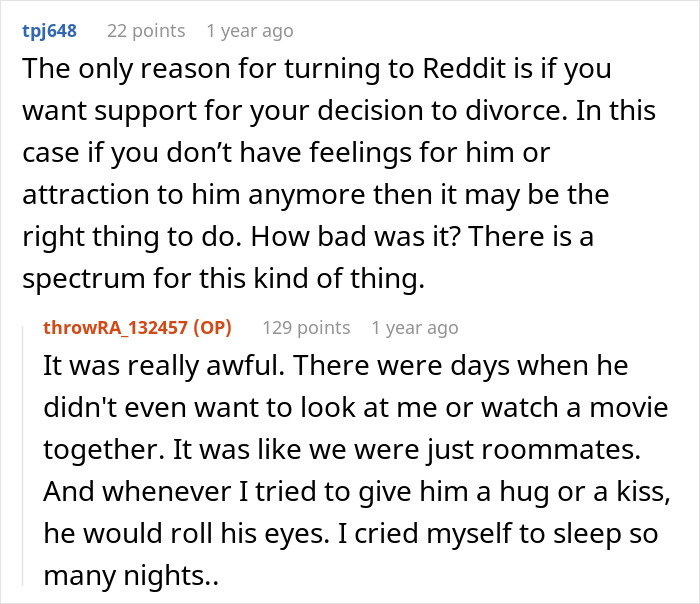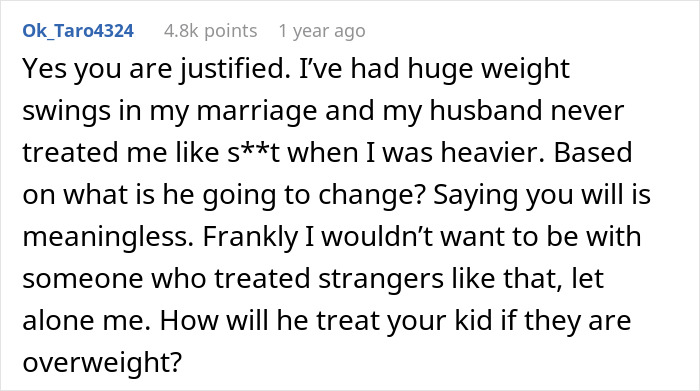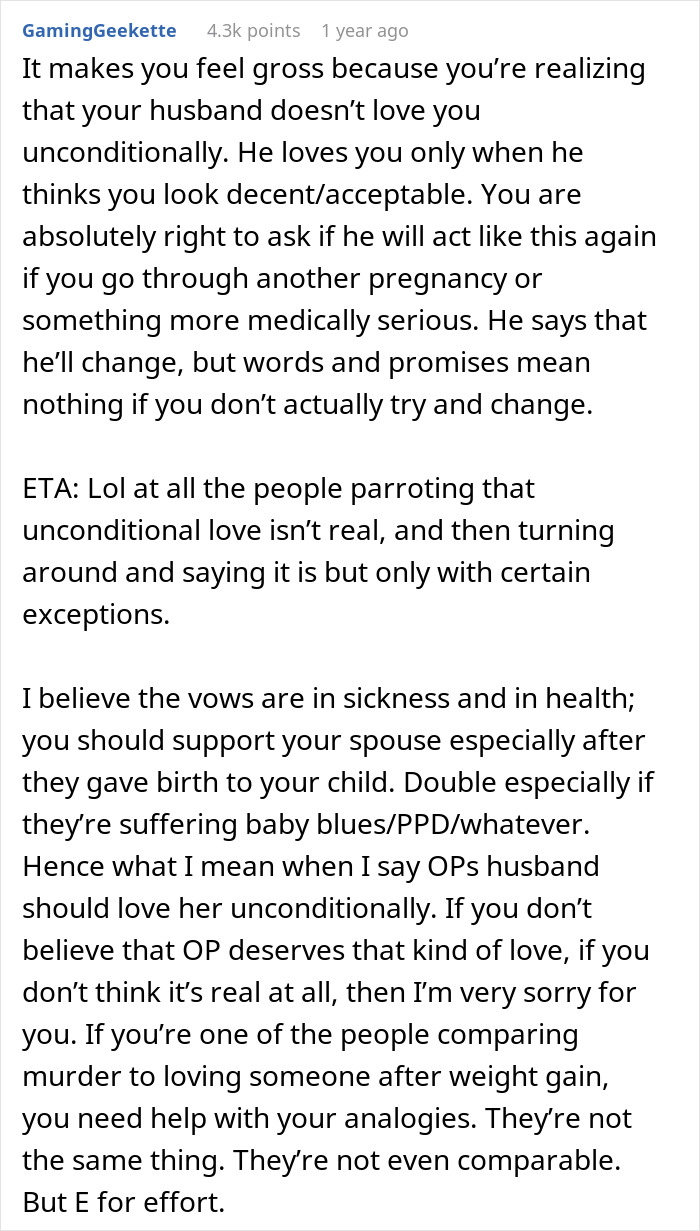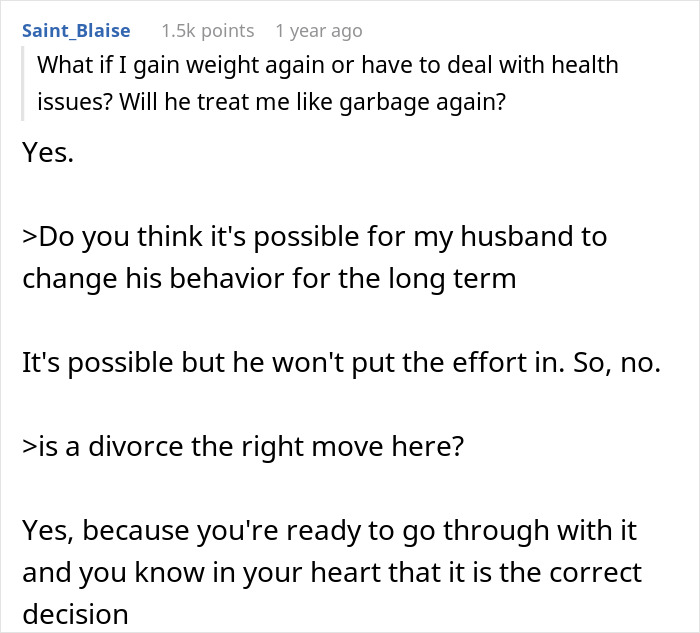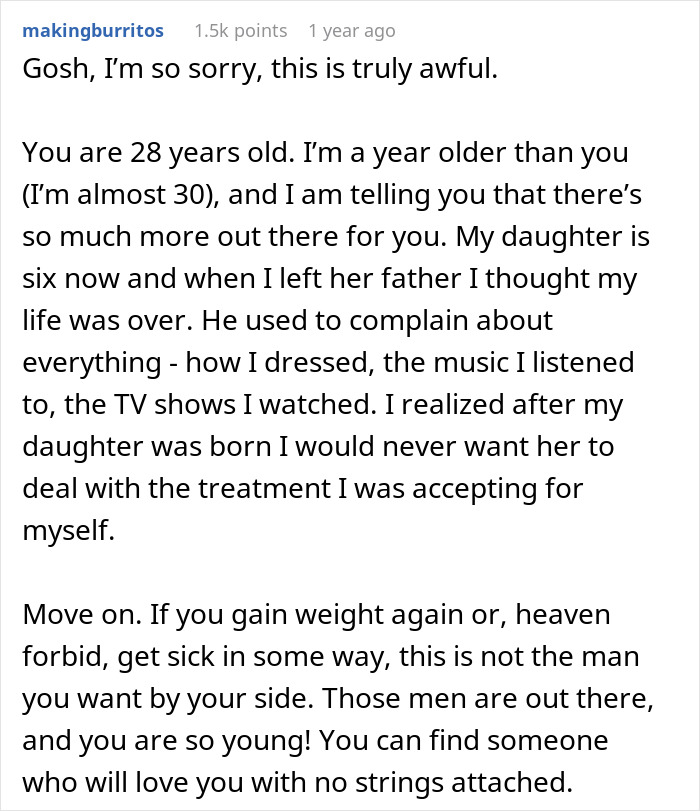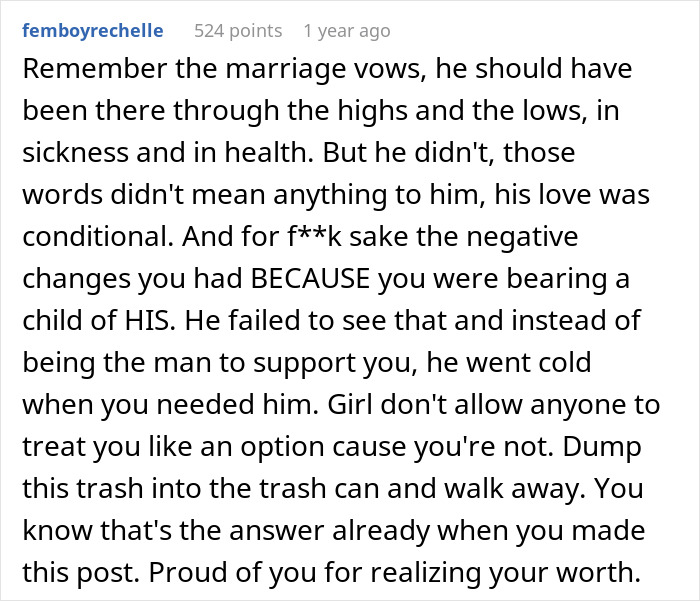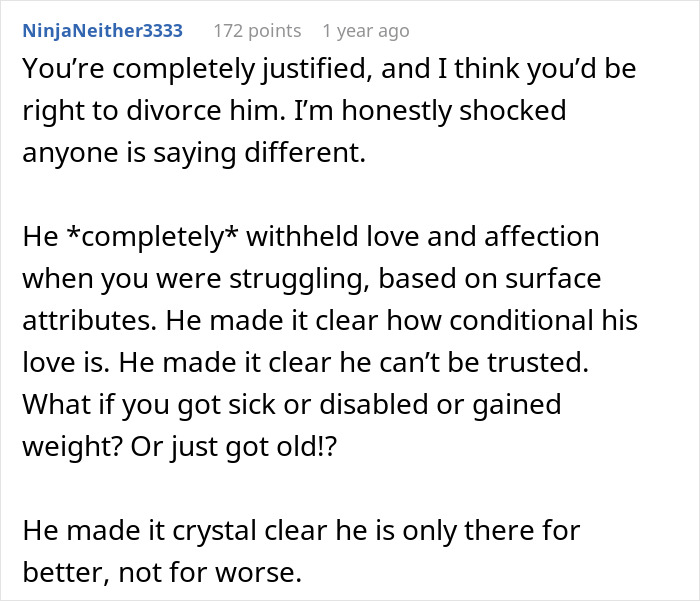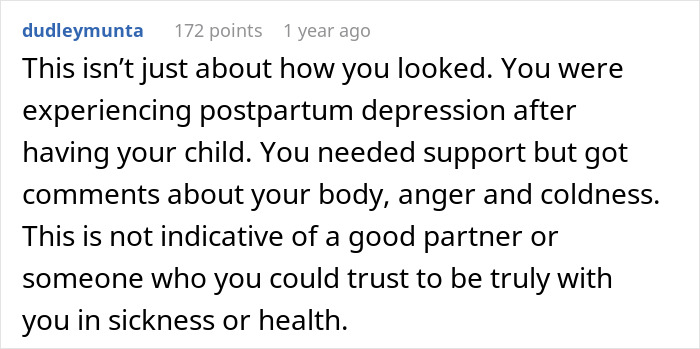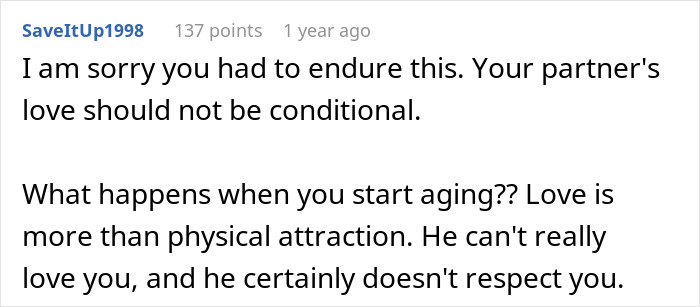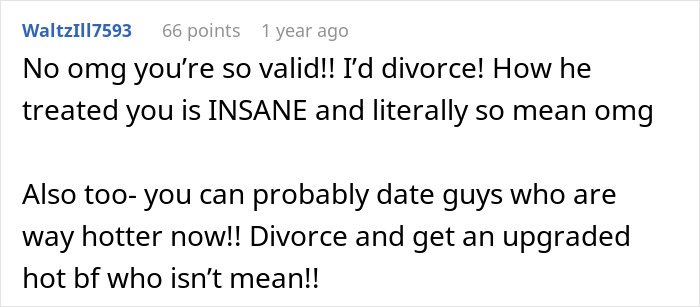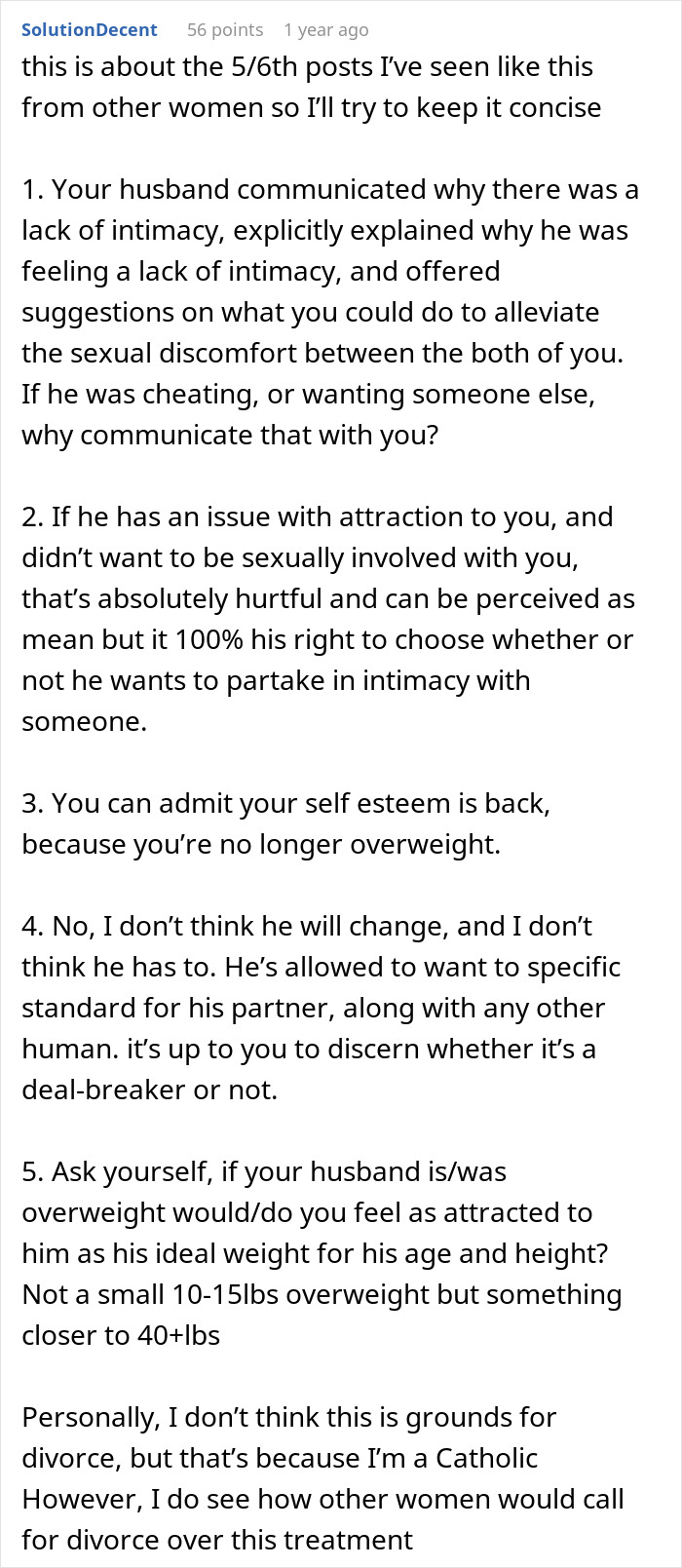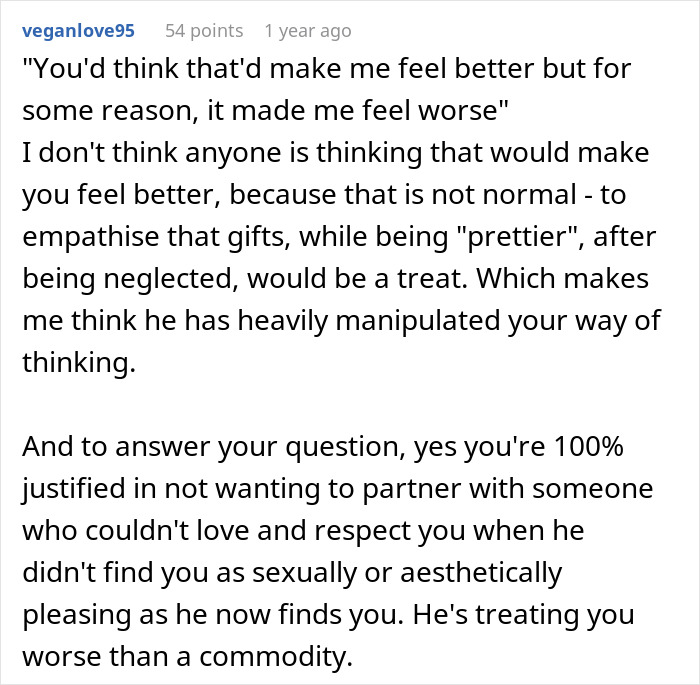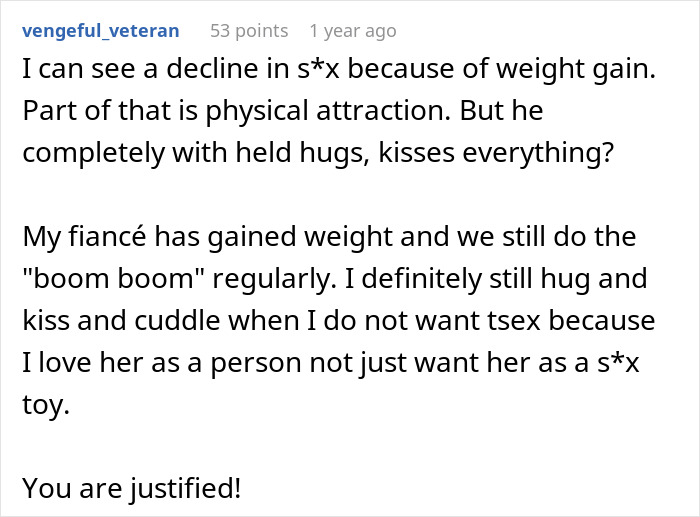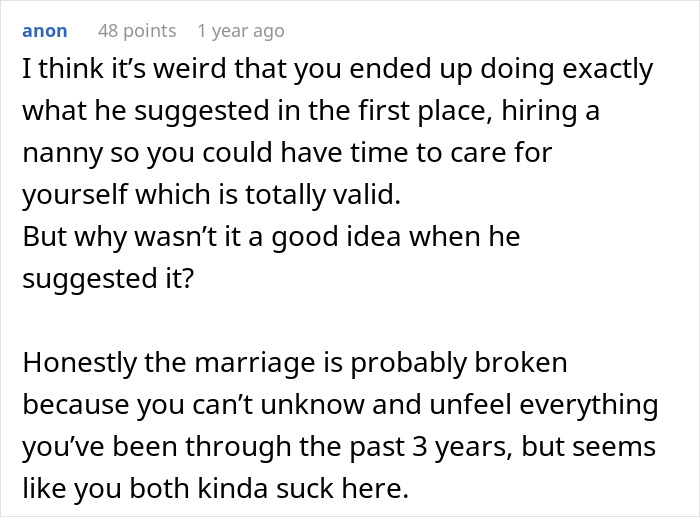The person you marry should be someone who stands by you through it all—someone who supports you during the hardest moments and celebrates you during the best. In sickness and in health, for better or worse. That’s the promise.
But when this Redditor became a mom, it felt like her husband forgot what he signed up for. Instead of being there for her, he picked apart her appearance—making cutting comments, pressuring her to lose weight, and growing distant when she didn’t.
She got in shape hoping to win back his love. His affection returned, yet it didn’t feel right. Now, she’s questioning if she wants to stay with someone who only showed up when she looked a certain way.
Read the full story below.
The man pressured his wife to lose weight after giving birth and acted like she didn’t exist until she did
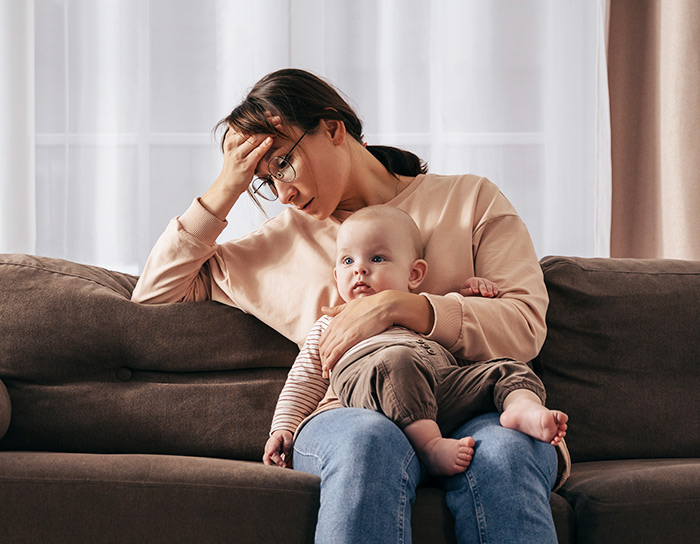
Image credits: ArseniiPalivoda / envato (not the actual photo)
But when she finally hit his standard, she realized he no longer met hers

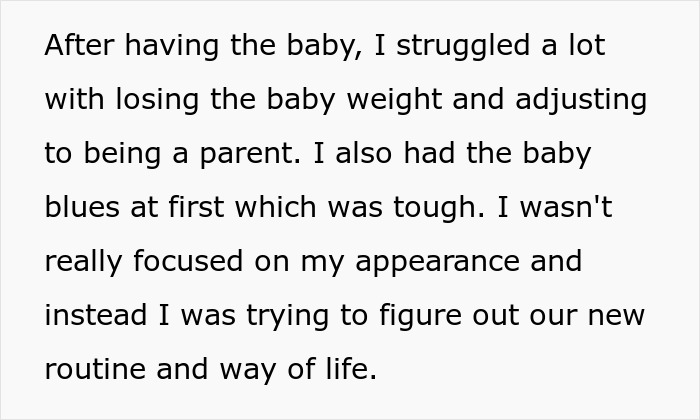
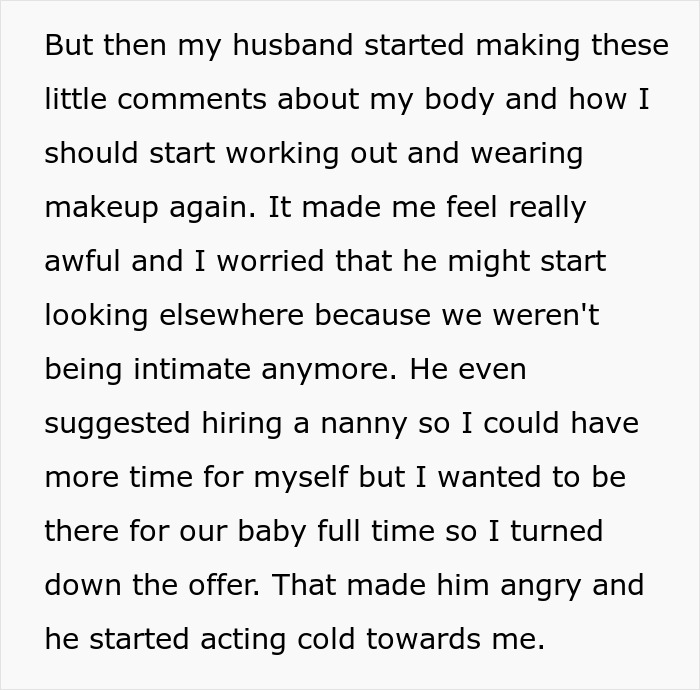
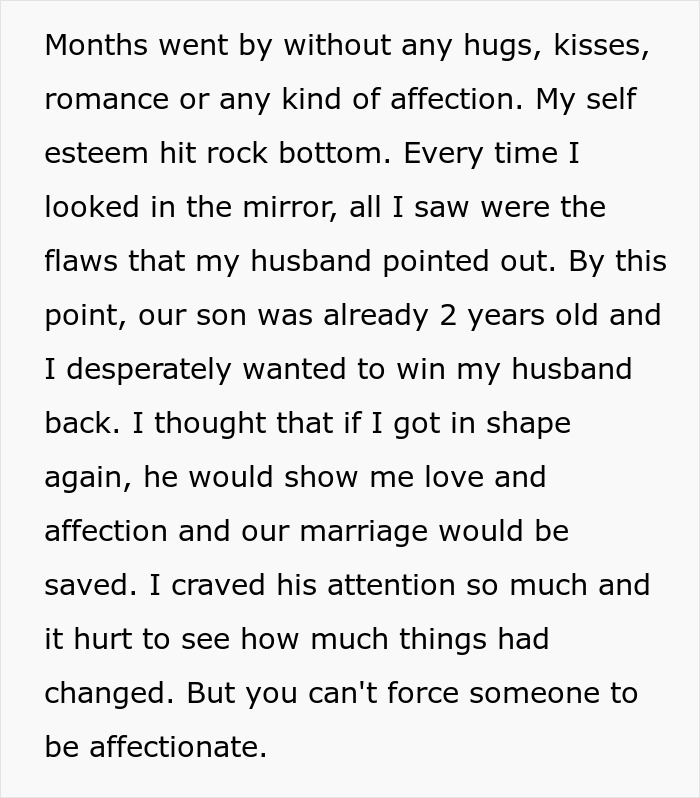
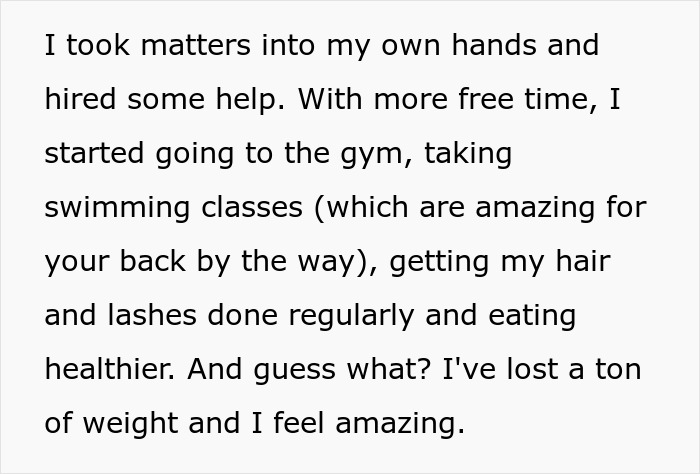

Image credits: avanti_photo / envato (not the actual photo)


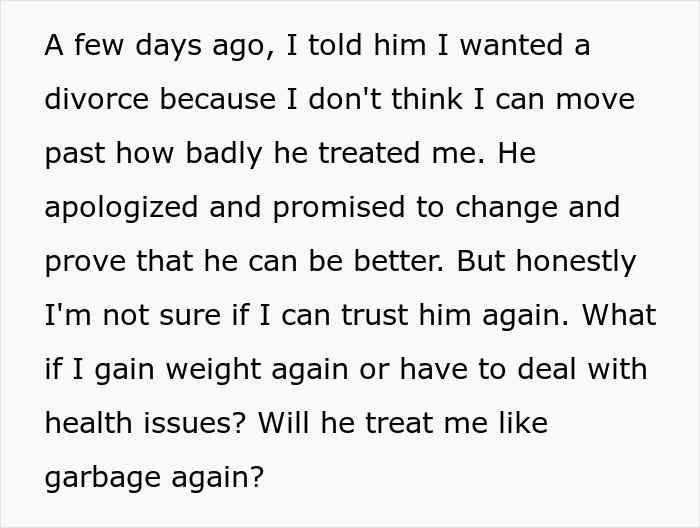
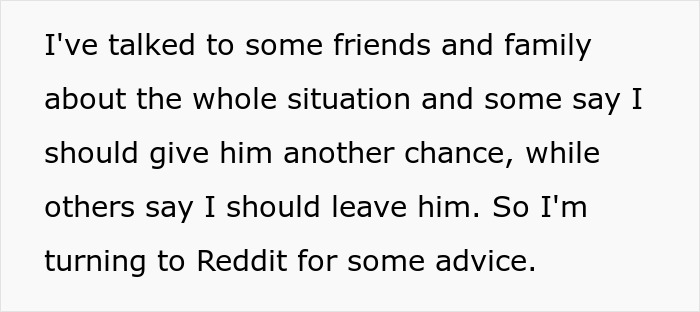
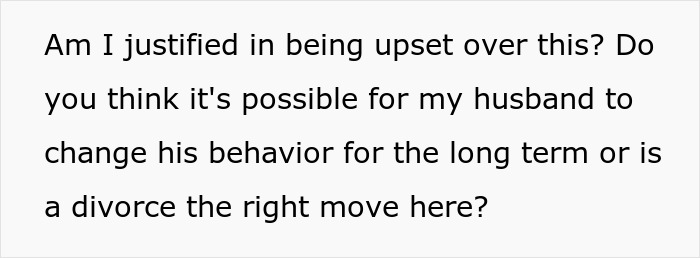
Image credits: throwRA_132457
Let moms rest, recover, and be seen

Image credits: Toa Heftiba / unsplash (not the actual photo)
Pregnancy and childbirth are life-changing experiences. You grow a whole human, bring them into the world, deal with emotional and physical stress, and then dive straight into raising them. It’s exhausting, beautiful, and intense all at once.
So when women gain weight during or after this process, it should be the last thing anyone comments on. After everything the body goes through, changes are not just expected, they’re normal. In fact, according to one study, around 75% of women are heavier one year postpartum than they were before pregnancy, with nearly half retaining over 10 pounds and about a quarter holding on to more than 20.
Still, the pressure for women to “bounce back” remains strong. Unrealistic beauty standards and body-focused criticism can leave many new mothers feeling anxious and insecure. The Mental Health Foundation found that over 40% of women who had been pregnant felt more negative about their bodies afterward, compared to only 12% who felt more positive. That’s a staggering gap.
Some believe they’re helping by suggesting weight loss or encouraging new moms to “just work out” or “watch what they eat.” But those comments often feel like thinly veiled criticism, adding to an already overwhelming list of responsibilities. Instead of helping, they come off as dismissive, tone-deaf, and damaging.
It doesn’t help that when the baby is born, much of the care and attention women received during pregnancy vanishes. According to a review published in PLOS ONE, postnatal care is still one of the most underserved areas of maternal health. Many women feel forgotten not only by those around them, but by the healthcare system itself.
“Once the baby’s out healthy, then people are kind of less bothered,” Soo Downe, co-author of the report and a professor of midwifery studies at the University of Central Lancashire, told CNN. She noted that commercial hospital systems may not see much profit in ongoing maternal care, which only makes the situation worse.
Rather than pointing out everything new moms are “doing wrong,” we should be asking how we can support them better. Based on a review of 36 studies across 15 countries and over 800 women, the most important factors for a positive postnatal experience were: feeling emotionally supported, adjusting to changes in relationships, accepting their new bodies, and receiving proper postnatal care.
Ultimately, what women wanted most was to feel confident and capable in their new roles, while being given the space to adapt emotionally, physically, and socially. That support can take many forms—like access to therapy for postpartum depression or honest conversations with a partner about intimacy and dividing responsibilities. Help from friends, family, or a nanny can also make a big difference by giving new moms time to rest and recharge.
“Society benefits from happy, secure mothers, babies, and families,” Downe said. “The more support we can give to women in the postnatal period, the better our societies are going to be for the future.”
With all the hurt and effort she endured, most readers felt she’d be better off walking away
